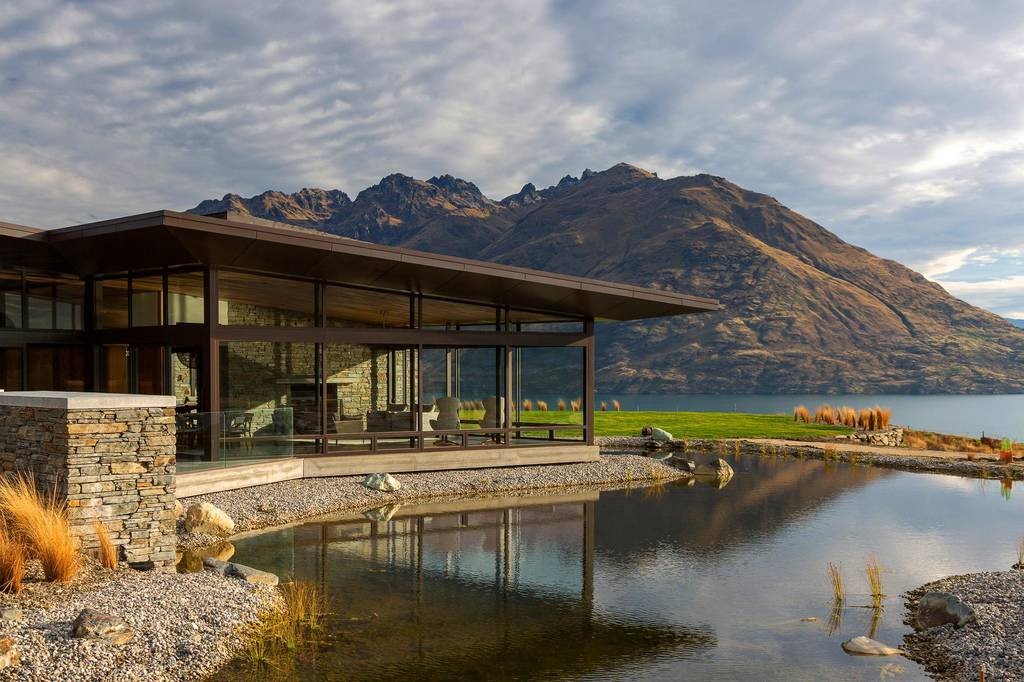June 23. The night before the Reserve Bank of New Zealand OCR Announcement.
Since we’re trading on the London Stock Exchange, we take the opportunity to buy some British pound. At the rate of approx. NZD $1.9150.
Like many analysts, we thought Adrian Orr and his team would leave the OCR at 0.25%.
He did. But in the commentary, the Bank went on to talk about LSAP. Large Scale Asset Purchases. Quantitative Easing (QE). Or, in layman’s terms, printing new dosh to buy bonds.
Money printing comes to New Zealand. Global experience shows the wealthy could benefit most. Source: Luxury Estate
June 24. Britain is asleep. There’s no UK news. But GBP.NZD now costs approx. $1.9375.
So, you see, one short release reduces the value of your dollar. With immediate effect. Even though those LSAPs were already planned.
Now, the Bank will tell you that QE within 10% of a nation’s GDP is ‘similar in size to that carried out by other central banks around the world.’ The EU, Japan, US, and UK. And it has worked to keep interest rates down.
This is true. But these economies have much larger domestic markets. The impact on a small, open economy is likely to hit the exchange rate much more. A lower exchange rate feeds inflation.
Quantitative Easing — like any drug — has side effects
The UK has been running QE for 10 years now. Initially designed to combat the emergency of the GFC, measures still remain in place today. And they are being ramped up again for COVID-19.
One of the main side effects is driving up asset prices. The FTSE enjoyed one of its biggest bull runs on record. Property prices galloped. This has serious impacts on wealth and inequality.
During periods of QE, the poorest 10% in Britain saw their wealth rise only £3,000. The richest 10% saw their wealth rise by £350,000. On a relative basis, the richest 10% increased their wealth by roughly half. The poorest 10% by only 30%.
Many of the jobs protected by monetary easing appear to be in higher management and finance. While the wages of ordinary workers stagnated.
Economist David Blanchflower wrote a book, Not Working: Where Have All the Good Jobs Gone?
He sees this inequality feeding into Brexit and populism.
But the worst side effect might be dependence. More than a decade later, Britain is still printing money to get through COVID. And it will likely continue to do so through Brexit. Further pumping Britain’s wealth divide.
The value of your money
After QE, money in your bank account could become worth a little less. And since your bank likely pays you very little interest, you then find yourself asking the question, ‘Where is the best home for my money?’
For many New Zealand investors, this comes down to the dilemma of investing in property or market instruments like shares.
The share market has taken a sustained hit from COVID-19 as many businesses see earnings slide.
It is too early to make a call on the property market. But one thing is for sure — property in this country is extremely expensive by any of the multiple-ratio measures.
And that is because there is a severe shortage. A classic case of market failure that, for 20 years, governments have stoked. Through high per-capita net migration. And inability to address building costs and pressures.
Strategic research
Here at Wealth Morning, we’re going to continue to provide you with strategic research and insights into investing. Seeking the best opportunities beyond the radar.
We’re also making some changes. You’ll see a new website design soon. Our regular commentary will continue. You can subscribe for free to join and contribute to our podcast radio talk show.
And our confidential, strategic recommendations will be available in our research platform — Lifetime Wealth Investor.
Recently closed positions there show gains of 262% in a gold small-cap, and 26% in a dividend-paying large-cap. Though we’ve seen ups and downs in other monitoring.
Alongside this platform, we are looking to offer professional training on global trading.
Leading research can and will continue to uncover opportunities beyond the radar. To help you invest and protect your money from the ravages of QE.
Of course, investing involves risks. Risks of market drawdown, business difficulty, and foreign exchange. But one of the greatest risks is your own psychological ability to deal with them. Most people overreact to loss. And underestimate the potential for gain.
Which is why the best investment any of us can make is in our own learning.
Regards,
Simon Angelo
Editor, Wealth Morning
Past performance is no guarantee of any future performance. This article is general in nature and not intended to provide any investment advice.






Simon is the Chief Executive Officer and Publisher at Wealth Morning. He has been investing in the markets since he was 17. He recently spent a couple of years working in the hedge-fund industry in Europe. Before this, he owned an award-winning professional-services business and online-learning company in Auckland for 20 years. He has completed the Certificate in Discretionary Investment Management from the Personal Finance Society (UK), has written a bestselling book, and manages global share portfolios.